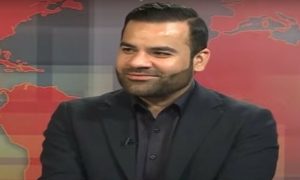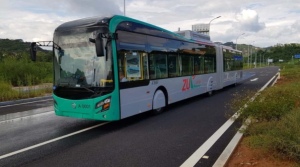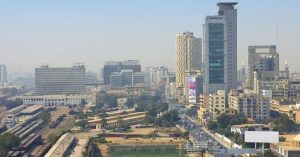
A year ago, Gov. Philip D. Murphy of New Jersey spoke proudly about his plan to let a corporate business tax expire, framing it as a promise kept in a state striving to compete for entrepreneurs.
“Allowing this surcharge to lapse will mean more money for them to create jobs, to invest in new and more efficient equipment, to lower costs to consumers and to be able to stay here,” Mr. Murphy, a Democrat, said as he unveiled his budget blueprint last February.
He was successful. And the tax expired two months ago.
On Tuesday, Mr. Murphy will propose reversing course and again implementing a corporate business tax of 11.5 percent — the nation’s highest rate — for the state’s most profitable companies, according to several of his aides. He is expected to present the restoration of the tax as part of a permanent solution to the dire financial condition of New Jersey’s statewide transit system during his annual budget address at the State House.
There is a key difference in this proposed corporate surtax: The 11.5 percent rate, if adopted, would apply only to companies with profits in excess of $10 million a year, up from the previous threshold of $1 million.
The Murphy administration said that between 600 and 700 companies would be obligated to pay the extra 2.5 percent surcharge on top of the state’s base corporate rate of 9 percent. (Until January, when the old tax formula expired, roughly 3,000 companies paid the highest rate.) Still, the governor’s aides said it would generate about $800 million a year in revenue.
Starting in mid-2026, that extra revenue would be earmarked for New Jersey Transit, which faces large and growing deficits. But Mr. Murphy does not see the tax — he is calling it the “corporate transit fee” — as an alternative to the fare increases New Jersey Transit plans to impose.
The agency proposed raising all of its train, bus and light rail fares by 15 percent on July 1 and an additional 3 percent annually after that. The agency’s board will vote on that proposal, which would be its first fare increase since 2015, after a series of public hearings next week.
Transit advocates and some Democratic officials have criticized the fare-increase proposal, saying that it will unfairly place an additional burden on workers who ride the trains and buses to their jobs.
“We have known about N.J. Transit’s budget issues for years, and we have been sounding the alarm,” said Alex Ambrose, an analyst at New Jersey Policy Perspective. “We have yet to see a solution from lawmakers that does not balance the budget on the back of hardworking New Jerseyans.”
Ms. Ambrose argued that Mr. Murphy should not have allowed the corporate tax surcharge to lapse in the first place and instead should have directed the money it produced toward the transit agency.
The governor’s new tax proposal is intended to address a longstanding criticism of the state’s transit-funding policy.
Transit advocates have called for years for the state to provide more annual funding that New Jersey Transit could rely on. Without a sufficient dedicated source, the agency has had to depend on allocations hashed out in the budget each year.
For the current fiscal year, the state provided about $140 million, up from $100 million in the previous year. That allocation was in addition to $440 million from tolls collected on the New Jersey Turnpike and $70 million from the state’s clean energy fund.
That mix amounted to the state’s biggest annual contribution to New Jersey Transit, but it was far from enough to cover the agency’s operating costs. So the agency had to divert $334 million from its budget for infrastructure improvements and equipment upgrades. Annual transfers like that hamper the agency’s ability to provide reliable service, advocates say.
Suffering through a sustained drop in ridership since the advent of Covid, New Jersey Transit has been surviving on more than $4 billion of federal pandemic aid for the past few years. That money allowed New Jersey Transit to maintain service levels, but it is due to run out next year.
Despite the agency’s financial instability, Mr. Murphy has claimed credit for a long list of improvements there, including the hiring of hundreds of train engineers and bus drivers, purchases of new equipment, raising on-time performance and reducing cancellations of trains.
Tuesday’s presentation by the governor is the opening bid in what will now be a monthslong negotiation with the State Legislature to finalize a spending plan for the fiscal year that begins July 1.






